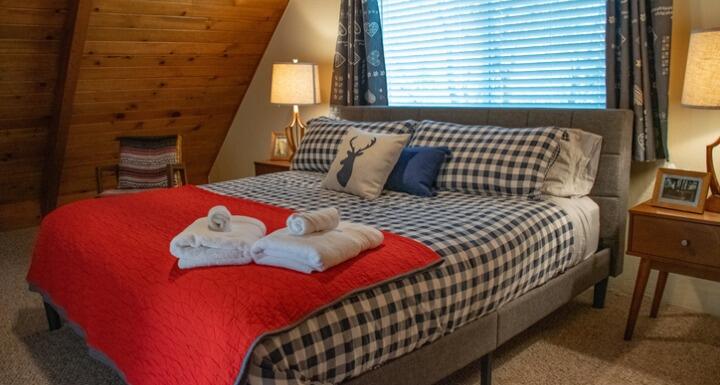We previously informed you that if you are a small business that needed to file bankruptcy to save your company, you may be able to take advantage of Subchapter V of Chapter 11 of the Bankruptcy Code. Subchapter V was part of the Small Business Reorganization Act ("SBRA"), which became law in February. It created a more streamlined and less expensive Chapter 11 reorganization path for small business debtors.
In a case decided last week, a Bankruptcy Judge in New York provided a first look at Subchapter V in action.
Recognizing its usefulness during the COVID-19 pandemic, he wrote: "Had Congress been given a crystal ball with the power to see what the world is facing today, including the severe disruption to our Nation’s economy and its impact on small businesses, Congress likely could not have drafted a more effective set of mechanisms to help these businesses reorganize and hopefully survive."
The case is particularly instructive for small business owners in the lodging and hospitality industry struggling to pay their mortgage. It involved the Harbor Rose, a luxury bed and breakfast on Long Island. The debtor, Dierdre Ventura, bought the property in 2007 with a loan from Wells Fargo. The loan was secured with a mortgage on the property. Wells Fargo later assigned its note and mortgage to Gregory Funding. Ventura also lived in the property (a town requirement for a bed and breakfast permit). The business provided lodging, meals, massage, and other amenities. Ventura defaulted on her loan and Gregory started foreclosure. The loan balance exceeded the property's value. In late 2018, Ventura filed a traditional Chapter 11 and the case puttered along for over a year with no resolution.
In November 2019, the Court told Ventura and Gregory to file competing plans. Gregory's plan sought to auction the property. Ventura's plan sought to bifurcate her mortgage into a secured and unsecured claim and to pay only the secured portion in full. But she resided in the property and the pre-SBRA Bankruptcy Code prohibited modification of a claim secured by a lien on a primary residence. So Ventura's plan was dead on arrival and the Harbor Rose was headed to the auction block. But before that happened, Subchapter V took effect and Ventura converted her case to a Subchapter V case.
The Court had to determine if Ventura qualified as a small business debtor under Subchapter V. Her debts were below the ceiling, but the issue was whether over 50% arose from "commercial or business activities." Gregory argued that since Ventura lived on the property, this was a residential mortgage, making its obligation a consumer debt. The Court said use as a primary residence was a factor but not dispositive, that the test was whether the debt was incurred "with an eye toward profit." As to that, the Court determined the Debtor's primary purpose of purchasing the Property was to own and operate a bed and breakfast and residing there was secondary (and a town requirement).
Now that Ventura qualified for Subchapter V, the rules changed in her favor. Before, she could not modify her mortgage ("lien-strip" in bankruptcy parlance), but Subchapter V specifically permits lien-stripping of some mortgages on a debtor’s principal residence. It is not absolute, but a debtor can modify a mortgage if the mortgage proceeds were not used primarily to acquire the real property and were used primarily in connection with the small business of the debtor.
The Court had to determine if the principal purpose of the debt was not to provide the debtor with a place to live and whether the mortgage proceeds were primarily to benefit the debtor’s business activities. It found this interpretation consistent with the purpose of the SBRA -- to assist small business owners in whatever form they take and give them speedy access to relief through bankruptcy.
The Court listed these factors to determine if a mortgage is subject to modification:
- Were the mortgage proceeds used primarily to further the debtor’s business interests;
- Is the property an integral part of the debtor’s business;
- How much the specific property is necessary to run the business;
- Must customers enter the property to utilize the business; and
- Does the business utilize employees and other businesses in the area to run its operations?
Ventura did not purchase the Harbor Rose as a residence and use one room as an office. She bought it and started renting rooms, then spent considerable time and resources to permit the property as a bed and breakfast. Its primary purpose was to offer rooms and services for guests. Ventura did not use the mortgage proceeds to refurbish the property or obtain permits, but she did use them to purchase the building that houses the business. Based on these facts, the Court concluded there was sufficient evidence to hold a full evidentiary hearing to determine if the Debtor could strip down the mortgage to the value of the property.
If you are a small business owner in the lodging and hospitality industry, this case should guide you through whether Subchapter V is an option for you. The specifics of your business and loan will control. Lenders in this industry also should know its potential impact in dealing with these loans.








